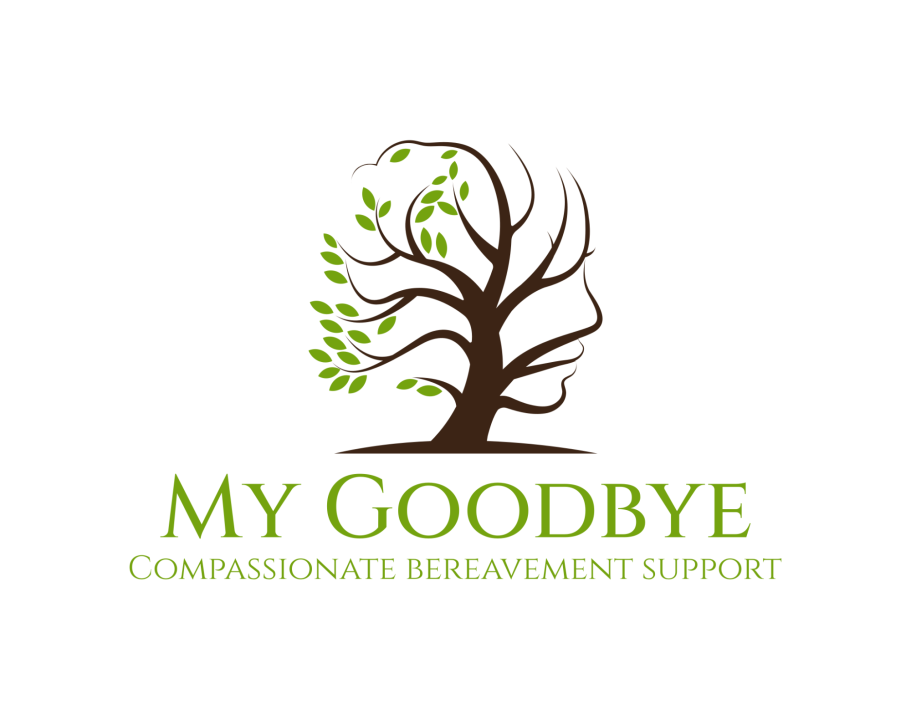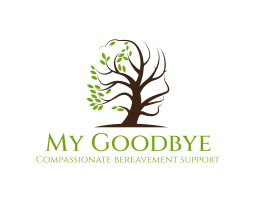
Grief, Nature and Exercise. What's the connection?
When experiencing emotional distress, we are often encouraged to spend time in nature to help us recover a state of equilibrium. It is also well documented that physical exercise releases the endorphins which can help calm anxiety.
It seems probable then that combining these two concepts into the practise of regular outdoor exercise could help in managing the challenges of mental ill-health. But could this hypothesis be extended to the significantly challenging task of recovering from a traumatic bereavement? Yes, it could; the benefits for bereavement care are borne out not just by anecdotal evidence, but also by systematic research.
Exposure to wildlife provides a meaningful and concrete reminder of the natural cycle of life and death. It helps us contextualise our grief as a part of something immense, far larger that our own emotionally painful situation. The great outdoors reminds us of our connection to the natural and animal kingdoms, and can help us feel connected to other beings who are also experiencing change and loss.
The concept of Biophilia suggests that we have an innate ability to feel connected to other species when we observe them in nature. We are not the only beings to experience distressed emotional states in the wake of a bereavement (The-truth-about-animal-grief) and spending time outdoors encountering wildlife can serve as an experiential reminder of that fact.
When we are surrounded by nature, we have the space to process the pain of loss, which is a necessary stage in the journey of bereavement recovery, away from the distractions and constant intrusions of modern life. The beauty of the natural world can imbue in us a sense of calm, and the vastness of the outdoors is the perfect context for the practise of mindfulness - staying aware of our surroundings, while allowing our thoughts and feelings to pass through us without judgement. The turning of the seasons that we observe reminds us that the only constant in life is change, and that where there is loss there is also new growth.
A study by the University of Bedfordshire (What Roles does Physical Activity Play Following the Death of a Parent as a Young Person? A Qualitative Investigation) concludes that physical activity is of equal importance to talking therapy in helping the bereaved to process their grief. Thus, it is not enough simply to observe nature – we need to walk and move in it. Doing so alone however could have the potential to increase the feelings of isolation that come as part and parcel of grief, so consider doing so in company.
The growing therapeutic practise of ecotherapy suggests that spending time in group settings in the context of the natural world is one of the most effective ways of growing new connections after traumatic loss.
So, if you don’t want to go it alone, reach out to your local walking group or other outdoor activity provider as an effective complement to counselling or other forms of talking therapy. The outdoor activity itself doesn’t have to be bereavement focused, it’s the connection with others in the outdoor environment that’s the important thing. Remember that your bereavement journey is unique, so try a few different options until you find the one that’s right for you. Start slowly and build upon your new beginnings, at your own pace. One outdoor step at a time.
Relevant organisations:
Open Gates Outdoors - outdoor participation for individuals and groups in the Sheffield area.
West End Adventures - Glasgow's number one outdoor activity centre.
References:
Williams, J., Howlett, N., Shorter, G.W. et al. What roles does physical activity play following the death of a parent as a young person? A qualitative investigation. BMC Public Health 23, 210 (2023). https://doi.org/10.1186/s12889-022-14542-6
Williams J, Shorter GW, Howlett N, Zakrzewski-Fruer J, Chater AM. Can Physical Activity Support Grief Outcomes in Individuals Who Have Been Bereaved? A Systematic Review. Sports Med Open. 2021 Apr 8;7(1):26. doi: 10.1186/s40798-021-00311-z. PMID: 33830368; PMCID: PMC8028581.
Teenage Grief
A powerful and sensitive film by Fixers UK that could be used to talk to young people about the benefits of talking therapy to help them process their grief.
All of us Strangers
A beautiful portrait of traumatic loss
All of Us Strangers is currently taking the world by storm. Written and directed by Andrew Haigh, and starring Andrew Scott and Paul Mescal, is based on the novel 1987 novel Strangers by Taichi Yamada. It’s a sensational film, an exquisite portrait of love and loss and has provoked a hugely emotional response from audiences.
Without giving away any spoilers, Andrew Scott’s character suffers the traumatic loss of his parents at a young age, and it shapes the rest of his life. Traumatic bereavement, for young people and adults alike, can colour their view of the world and how they see themselves in it. It can lead to Post Traumatic symptoms such as re-experiencing events, isolation, irritability and guilt. If you are experiencing this level of symptom, please contact your GP for a specialist trauma referral or get in touch with us for further information.
Losing your Mum?
When our mother (or mother figure) dies, it can present a unique type of challenge which can take us years to navigate. This thoughtful article from the Guardian, written by an author bereaved of his mother, examines some of the difficulties this most tragic of losses can present us with, in an insightful and honest piece.
January 2024

Bereavement Support Payment
Did you know that if your partner dies you could be entitled to a one-off payment of up to £3500 from the government? It is available in all countries across the UK and can really help with the secondary financial losses that can result from losing your life partner.
How does grief affect children?
As a parent it is very challenging to watch your child suffer in the wake of a bereavement. You may be suffering too, or you may be parenting a child who is grieving for someone that you yourself weren’t close to. Either way, it’s difficult to see your child in emotional pain.
Children deal with bereavement in a multitude of ways, and not every child will need bereavement support or grief counselling. Grief is a natural process, and many children can navigate it with their existing support networks. Have a look at this pyramid of bereavement support which illustrates the differing levels of support that may be needed by a grieving child.
source: https://nationalbereavementalliance.org.uk/grief-matters-for-children/
All grieving children need support from their existing networks, including school and home, to reassure them that experiencing difficult feelings after a death is normal, and that these feelings can come and go in waves.
Some grieving children who are struggling to come to terms with their loss may benefit from bereavement support or grief counselling, to help them process their grief in a neutral environment (some children worry about upsetting their parents by expressing how they have been feeling)
Few grieving children may need specialist psychiatric or psychological support from CAMHS or another trauma service – your bereavement support practitioner, grief counsellor, or GP will be able to advise you if this is the case.
For further information on children’s understanding of death at different ages and stages click here: https://www.winstonswish.org/do-children-understand-death/
For a free initial consultation to talk about how I can support your child please call me on 07966 267398 or email on zoe@my-goodbye.co.uk.


Bereaved by Covid?
Have your say at the UK Government's Covid 19 enquiry.
Have your say at the Scottish Government's Covid 19 enquiry.

Happy New Year?
January 2024
At the beginning of a new year, the focus is on fresh beginnings and looking forward. Everyone around you is planning and breaking their new year resolutions, making their summer holiday plans, and taking positive steps forward while embracing the year ahead. But what if you’re not in the mindset to begin afresh?
Grief can be a difficult journey which knows no defined route and doesn’t recognise January 1st as an appropriate time to vanish. In fact, the idea of facing the new year ahead without your loved one can seem daunting. It might be that you’re looking ahead to the first (or tenth) anniversary, birthdays, and other special occasions with trepidation and anxious thoughts of what they might look like in this “new world.”
Here are some tips for looking after yourself when you feel unenthused and sad about the idea of embracing 2024 in the wake of your grief.
1) Remember you are not alone.
Many other people who have lost loved ones are feeling it too. Grief can be a very isolating experience, and while no one else can understand the exact nature of your unique bereavement there are others who are facing a comparable pain. Reach out to grief support groups in your local area, or explore online options for bereavement support and counselling - help is available for both adults and children.
2) Concentrate on your basic needs.
Make sure you are eating and keeping hydrated. It’s easy to forget when difficult emotions are running high. If you don’t have the concentration to remember to do so, enlist the help of your partner or a friend, or set an alarm.
3) Don’t feel pressure to socialise.
Friends who haven't been in touch may reach out to you at the beginning of the year, perhaps hoping you’ll be ready to socialise in a similar way to how things were before your bereavement. While connection and human relationships are really important in helping you navigate your journey through grief, it’s essential to re-engage at your own pace – you'll know when you feel ready to spend more time with friends. As the old adage says, the ones who mind don't matter, and the ones who matter don't mind.
4) Get lost in a book (or magazine if your attention span feels short), your favourite drama, or trashy reality tv.
Your brain needs a break from processing the emotional pain of grief. Have a look at the Dual Process Model of Grief for some in-depth information on why it’s important, and necessary, to distract yourself from time to time.
5) Take it a day, an hour, a minute, or a moment at a time.
A year stretching in front of you in the wake of a bereavement can provoke some exceedingly difficult feelings. A new year is with us, but that doesn’t mean that your grief journey has begun afresh. So If you're struggling with your loss, please don't feel like you've been cast back to square one.
You’ll have come so far already; no matter how long it's been.
We need your consent to load the translations
We use a third-party service to translate the website content that may collect data about your activity. Please review the details in the privacy policy and accept the service to view the translations.

